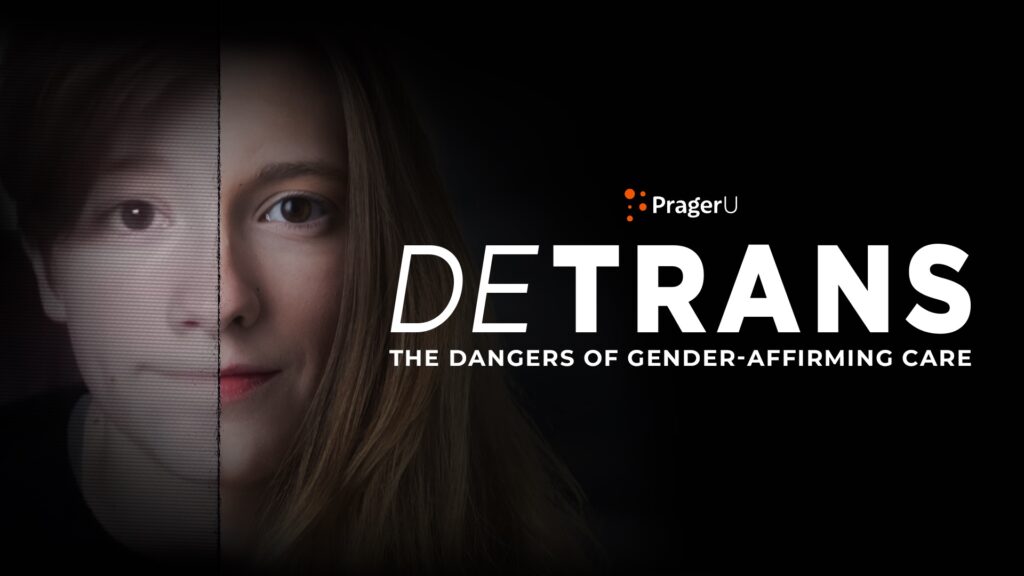PragerU releases educational film about the dangers of ‘gender-affirming care’
Conservative education nonprofit PragerU has released a short documentary, “DETRANS: The Dangers of Gender-Affirming Care,” and kicked off a $1 million marketing campaign to promote it.
The…

Conservative education nonprofit PragerU has released a short documentary, “DETRANS: The Dangers of Gender-Affirming Care,” and kicked off a $1 million marketing campaign to promote it.
The marketing effort included a “timeline takeover” on X, formerly known as Twitter, last week.
“Every person who uses Twitter that day will see the #DETRANS promotion,” PragerU wrote in a press release, according to The Daily Dot.
The conservative nonprofit picked X because it is the least censored, said Craig Strazzeri, chief marketing officer for PragerU.
“We decided to pursue an X takeover because it’s a great opportunity for us to reach a massive audience on the dangers of gender affirming care given that X is one of the least censored social media platforms thanks to Elon Musk,” Strazzeri explained to NBC News. “This will give millions of people the opportunity to hear important stories from detransitioners themselves, many of whom have been censored and even ostracized because their lived experiences do not affirm the mainstream media’s narrative.”
Strazzeri said that, after watching the film, the organization hopes “viewers will have a better understanding of how young Americans are being manipulated by social media and medical professionals to undergo life-altering surgeries that often come with major regret.”
The film tells the stories of Daisy Strongin, Abel Garcia and several other individuals who regret taking hormones and undergoing surgeries as minors as part of gender transitions.
“There are so many young people who are going through very similar things that I did and are still being told that transitioning will save them,” Strongin said in the documentary. “And it’s just not true. My story is tragic in some ways, but it’s very redemptive in many ways.”
Strongin battled with depression at a young age and turned to the internet to cope.
“The more time I spent online, the more it felt like real life,” Strongin said. “And the more real it felt…eventually led to me just totally transitioning.”
When Strongin sought medical help, she left with her first shot of cross-sex hormones in her first appointment, an experience many other liker her experienced.
“It’s probably not really a good thing that I was able to get my hormones so easily,” Strongin said. “I mean, anyone can go in there.”
As easy as it was for Strongin to get hormones, Garcia said it was just as easy to get approved for “bottom surgery,” which refers to surgical procedures to transform genitalia into the opposite sex.
“Eleven months after I had started hormones, I was transferred to another medical professional who, after speaking with him for one time only, he approved me for surgery,” Garcia said. “A few weeks after that session I get a letter from my insurance approving me for surgery. But I was a little surprised that I received my letter for bottom surgery, which was removal of my genitals, without even asking.”
For Strongin, her mental health didn’t improve when she transitioned, she says.
“You did this thing to alleviate this gender dysphoria that wasn’t there before, but you’ve made it into a problem and now your body issues are worse,” Strongin said. “That’s not supposed to happen. What do we do now?”
After deciding to detransition, Garcia said no one would help him.
“Nobody would help me because they had more concern about me reversing everything,” Garcia said. “I just socially detransitioned, got the implants removed.”
Despite detransitioning, Garcia now lives with the medical side effects caused by the experimental surgeries.
“My chest is not like it used to be and it never will,” Garcia said. “I have scarring, numbness and unfortunately my nipples are completely different, to put it lightly.”
Strongin, Garcia and several other detransitoners are speaking out in hopes that their stories can prevent other minors from the harms of such radical treatments.
“DETRANS” is available for free on the PragerU website and mobile app.



